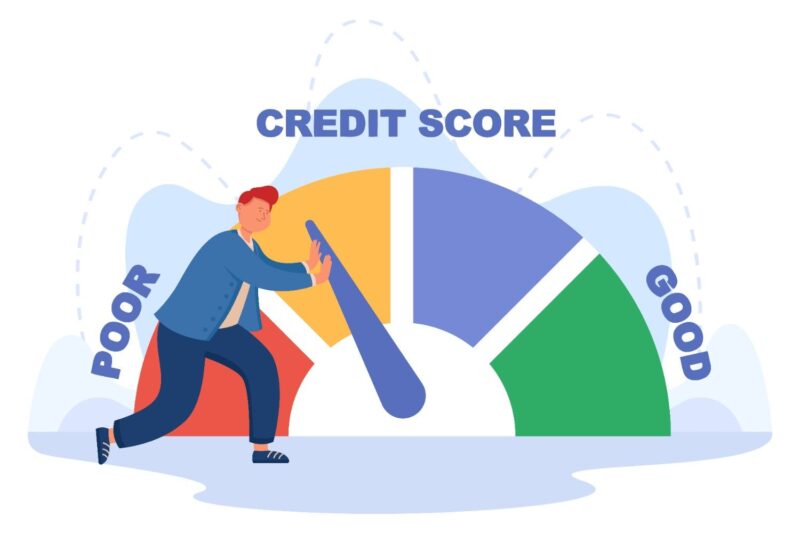Whenever people find themselves in need of immediate cash, they usually go for small loans to pay off their medical bills, do necessary repairs, go on a trip or meet any other sudden expenses. These loans come with the fewest restrictions; however, the borrower’s concern about CIBIL score being a prerequisite is still prevalent. The truth is that the small loan CIBIL requirement depends on the lender, the loan amount and your repayment history.
In this blog, we break down the CIBIL score needed for small loans, how approval works and how you can qualify easily even if your score is low.
Why CIBIL Score Matters Even for Small Loans
Banks and NBFCs use the CIBIL score to judge how reliable you are with repayments. So even if the amount is small, your score still plays a role. Knowing how CIBIL score affects small loan approval helps you understand what lenders look for.
A high score will mean,
- Faster approval
- Lower interest rate
- Better loan limits
- Stronger trust from lenders
However, there are still a lot of fintech apps that would grant loans even when your score is low or not there at all.
CIBIL Score and Small Loan Eligibility
| CIBIL Score Range | Approval Chances | Interest Rate |
| 750+ | Very high | Low |
| 650–749 | Good | Moderate |
| 550–649 | Possible with NBFCs | High |
| Below 550 | Low | Very high |
| No score | Depends on fintech lenders | High |
This table helps you understand the small loan CIBIL requirement across different scores.
Are Small Loans Possible Without a CIBIL Score
Yes. In fact, numerous fintech apps and NBFCs do the same, and some approve loans based on zero credit history of the customer. Hence, the problem of whether the CIBIL score is necessary for small loans has become a common one.
You may still qualify if,
- You get a reliable income every month
- You submit a few basic documents
- You satisfy the minimum age and KYC requirements
The platforms will consider your salary, bank statements or spending habits instead of your credit score.
How Olyv Assists in Small Loan Approval
Platforms like Olyv help you track your score, your utilisation and your repayment behaviour. This gives you a clear idea of how to improve the chances of small loan approval before applying.
Olyv also helps you build good financial habits so your small loan CIBIL requirement becomes easier to meet over time.
Why Some Lenders Skip CIBIL for Small Loans
Small-ticket lenders occasionally shy away from strict checks for the following reasons:
- Loan amounts are small
- Risk is lower
- Approvals must be fast
- Digital scoring systems are used
This explains how to qualify for a small loan without a CIBIL in many cases.
When Lenders Check CIBIL and When They Don’t
| Lender Type | CIBIL Check | Notes |
| Banks | Yes | Strict approval rules |
| NBFCs | Sometimes | Flexible for small loans |
| Fintech apps | Often no | Based on the spending pattern |
| Salary advance apps | No | Check salary flow |
| Wallet-based lenders | No | Based on spending pattern |
This shows how different lenders treat the small loan CIBIL requirement.
How to Get a Small Loan With Low or No Score
You can improve your chances of approval by following these steps,
- Keep your bank statement clean
- Maintain stable income inflow
- Avoid bounced payments
- Keep utilisation below 30 per cent
- Reduce recent loan enquiries
- Use secured credit cards to build a score
These habits support how to improve the chances of small loan approval, even if your score is not strong.
The Impact of CIBIL Score on Small Loan Approval
Although there are some lenders who disregard the score, the majority still prefer borrowers with a good score.
This is the reason,
- It cuts down the risk
- It indicates the discipline of repayment
- It allows the lenders to offer lower interest rates
- It raises your loan limits
Therefore, this is just how the CIBIL score in practice affects small loan approval.
Is a CIBIL score necessary for small loans?
The brief answer is: Both Yes and No. It is dependent on the lender. Banks definitely require it. NBFCs are uncertain whether they need it or not. Fintech applications usually do not require it.
Thus, the knowledge of the small loan CIBIL requirement becomes a deciding factor in getting the right lender.
Conclusion
A CIBIL score is useful for all types of loans, even small ones. It increases your chances of approval and helps you get better rates. Still, several lenders offer loans without checking your score, especially fintechs. Once you understand the CIBIL score needed for small loans and follow the right steps, you can apply confidently anywhere.


